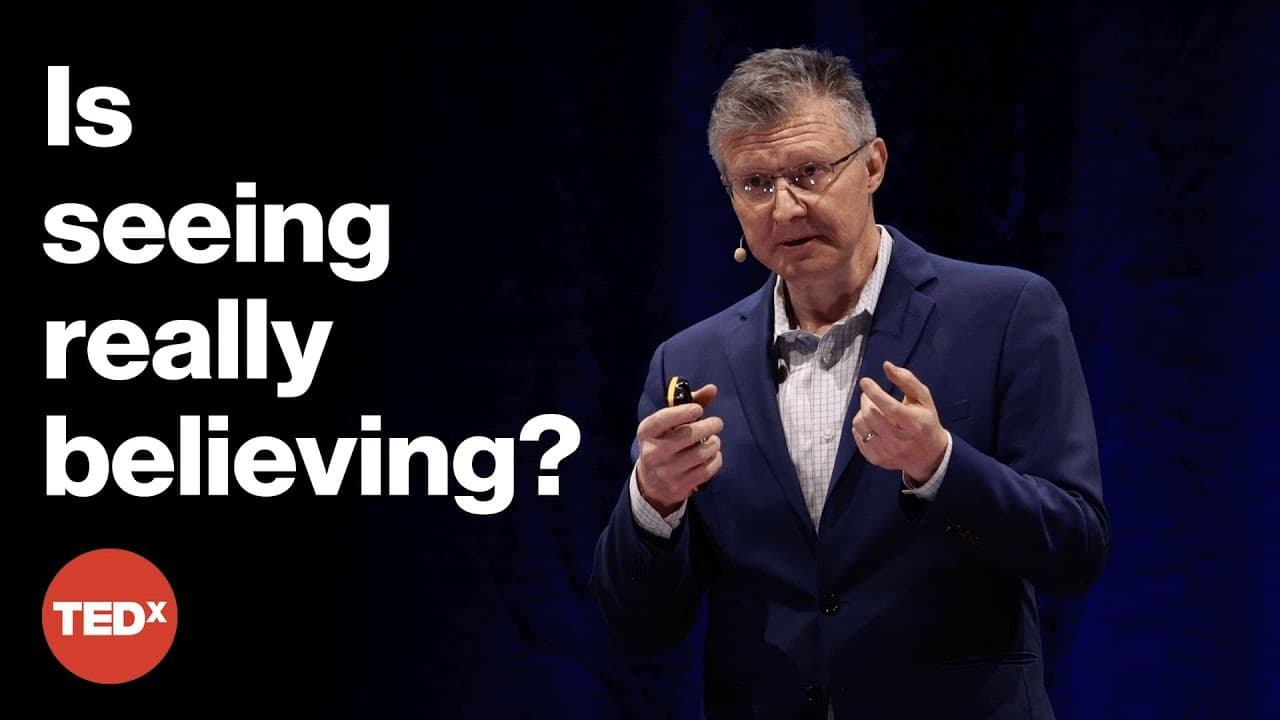How your vision determines your reality | Bryan William Jones | TEDxBerlin
05 Jun 2024 (over 1 year ago)

The Human Brain and Perception
- The human brain is a complex organ responsible for our personality and experiences.
- Our brains receive information from the world through our senses, and we perceive reality based on this information.
- Neuroscientists recognize at least 20 senses that contribute to our perception of reality.
- Our brains fill in gaps in sensory information by modeling or predicting what we think reality is.
Color Perception
- Vision is a complex sense that involves the retina, a sophisticated computing device at the back of the eye.
- Different people perceive colors differently due to variations in their visual systems, such as color blindness or tetrachromacy.
- The dress phenomenon of 2015 revealed a fundamental difference in how people perceive colors.
- Color is a shared illusion created by the biology of neurons in our retinas and brains, influenced by our sun's energy.
- Our brains interpret the electromagnetic emissions from the sun, specifically the wavelength of photons, as colors.
- The visible spectrum of light, which we perceive as colors, ranges from 400 to 700 nanometers.
- Photo receptors in our retinas, called opsins, match specific wavelengths of light and correspond to the colors we perceive as blue, green, and red.
- Our eyes evolved to capture light, and our photoreceptors act as biological antennas for photon energies between 400 and 700 nanometers.
- Colors don't exist in nature; our brains perceive combinations of wavelengths that we associate with important things for survival, such as food and reproduction.
Individual Realities and Compassion
- Each individual lives in a slightly different reality due to variations in sensory perception and processing.
- Despite these differences, we generally agree on what reality is.
- In a chaotic and divisive world, it's important to recognize the diversity of our experiences and default to compassion and kindness.